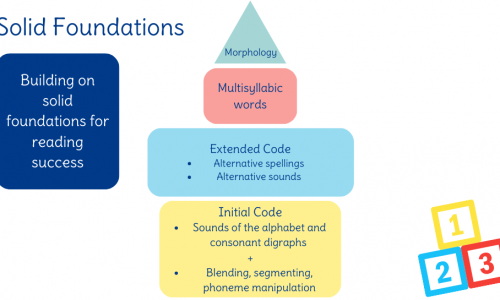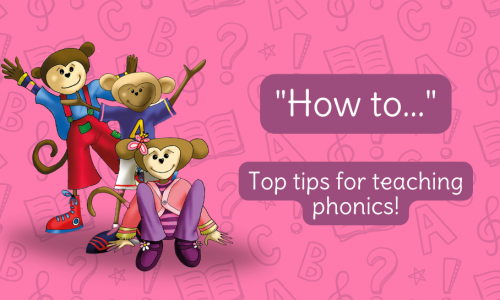We know that vocabulary is one of the five elements that make a fluent, confident reader. These five are: phonics, phonemic awareness, comprehension, vocabulary and fluency. While phonics and phonemic awareness are the bedrock of reading that allow children to decode words accurately, the other three are intertwined. If you have a good vocabulary […]
Read Morearticle
Teach high-frequency words like an incomplete puzzle

English is complex and we need to teach reading in a structured way, from simple to complex. Unfortunately, there is no avoiding high-frequency words with spellings the children haven’t learnt yet because they are present in even the simplest of sentences, e.g. ‘The cat is on the mat’. In the very first sentences children read […]
Read MoreSpelling helps reading more than reading helps spelling
In my previous blog post I mentioned I was lucky enough to listen to a much-sought-after webinar given by the Reading Ape. Well, I came away with another rethink: “Spelling helps reading more than reading helps spelling,” the Reading Ape explained. This is based on the research and work of Perfetti, and is supported by […]
Read MoreWhy sorting words is an important activity
I recently listened to the much-anticipated webinar given by the Reading Ape. (If you haven’t heard of the elusive Reading Ape, do check out the website which has fantastic research-based articles about reading.) Anyway, the Reading Ape discussed the research of Cattell, 1886, that showed that we read words quicker than we read individual letters. […]
Read MoreBuild solid foundations for reading success

Now that kids are back in school, teachers must make sure that they have solid foundations for reading. These foundations will ensure reading success throughout their education and beyond. Who knows what exciting opportunities lay ahead for our young readers? But first they will need to learn to read. So what are the foundations we […]
Read MoreScope and sequence – what does this mean?
All phonics programmes should have a ‘scope and sequence’ but what does this actually mean? ‘Scope’ means what you are teaching When teaching reading with systematic phonics, ‘scope’ means teaching the Alphabetic Code. English has 44 sounds and more than 175 spellings for those sounds. So, do we need to teach them all? Which are […]
Read MoreBack to school – where to start with readers having difficulties
Many children will have failed to reach their reading attainment last year due to missed school and the inevitable patchy learning during periods of lockdown. On top of that, we now have the ‘summer slump’ when pupils seem to have forgotten what they learnt, or do they just need a quick revision? As kids return […]
Read MoreWhat is phonemic awareness and why we should teach it

We know that phonological awareness is one of the 6 components of learning to read: phonological awareness – being able to identify sounds in words which includes syllables, rhyme, alliteration and phonemes. phonics – to recognise letters and combinations of letters that represent the 44 sounds of English fluency – ability to read with pace, […]
Read MoreHow to… teach blending

In our ‘how to…’ series we are going to delve into all things phonics instruction and give you our expert advice on developing confident readers. *** In her podcast, Evidence Based Education, Dr Tracy Alloway explains working memory as ‘your ‘active’ memory. The memory you use to work with information.’ She describes working memory as […]
Read MoreWhy the Phonics Check is not just for Year 1
I recently had a Zoom meeting with a Year 6 teacher who discussed how a number of his pupils were struggling with reading and he said he was using the Year 1 phonics check to assess them. This may seem odd, but is has never occurred to me that the Year 1 Phonics Check is […]
Read More
